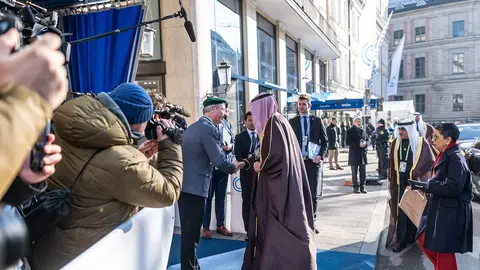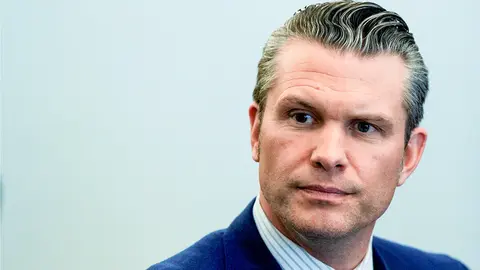Trump and the new world order

During the US elections I predicted that, with Donald Trump, there would be a change in the world order. This change is happening at an accelerated pace and has baffled the main European leaders and most of the world.
Trump and the economic elite around him are realistic about the decline of US imperial power in the face of the resurgence of the Asian powers (the East) of Russia, China, India, Iran (Persia) and Turkey, as well as emerging powers such as Indonesia, Nigeria, South Africa and Brazil.
Trump knows that the unipolar power of the United States came to an end with the military defeat of the empire in the war in Ukraine by Russia. He is also realistic about the fact that with the decline of that hegemony, a path is opening up towards a new multipolar world, a new distribution of world control and a new reformulation of multilateral institutions.
In the elections, Trump defeated the globalist corporate elite led by the economic empires of BlackRock and George Soros, who controlled US policy in the last Democratic administrations of Bill Clinton, Barack Obama and Joe Biden, in the other countries of the Anglosphere and in the European Union.
Trump won the election with the support of a sovereignist economic elite that is pushing for a new world order with a protectionist economic vision, different from that of the globalist elite of the Washington and Cornwall Consensus, the latter on the green economy, the energy transition and the 2030 Agenda.
Therefore, the Trump Administration's commitment is not to continue with the gigantic military spending on external wars and on a foreign policy that has the empire on the verge of collapse. Its commitment is to develop a protectionist economic policy, of reduction of public spending, directed towards a new financial and economic reorganisation of the empire, a reindustrialisation of the empire with high technological advances to avoid the collapse of the empire.
The opening of talks in Saudi Arabia with Russia, on the one hand, marks the interest of its Administration in putting an end to the war in Ukraine and, on the other, in resuming political and economic relations with Russia. It also marks the emergence of a new multipolar world order that is moving towards a division of world power with China and Russia.
Although so far the talks are with Russia, Trump has expressed interest in sitting down to talk with the president of China. Now, the fact that the talks are taking place in Saudi Arabia, a country that has good relations with all three powers, is a clear message that the Trump Administration is heading towards a new Yalta with Russia and China. It is also an indicator that the conflicts in the Middle East, especially those in Syria and those of Israel with the Palestinians in Gaza and the West Bank, will be on the agenda of the negotiations of the three powers.
The military defeat of the United States and its 34 NATO allies in the war in Ukraine and the economic collapse of Europe as a result of the war mark the disappearance of the European powers as decisive actors in international politics.
The talks with Russia are a prelude to a new kind of Yalta Conference, named after the city in Crimea where, from 4 to 11 February 1945, the leaders of the United States, Britain and the Soviet Union: Roosevelt, Churchill and Stalin, divided up the control of the world 80 years ago.
The meeting in Saudi Arabia with Russia, in the same month that marked 80 years since that conference of the leaders of the three great powers after the Second World War, is a symbolic message that stages the first steps towards a future conference between Donald Trump, Vladimir Putin and Xi Jinping, where they will seal agreements on a new distribution and control of the world.
@j15mosquera



